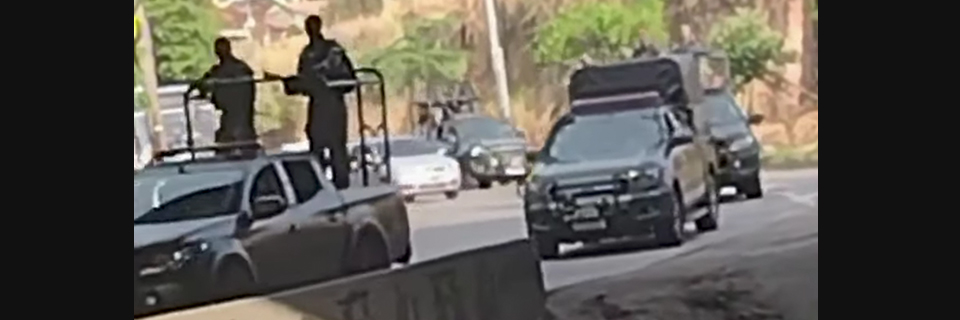
In recent weeks, war has broken out in the City of God favela of Rio between the police and the drug traffickers. As this police action began, the drug traffickers ran to the woods to escape. Police then fired indiscriminately in the direction the drug dealers had fled. Chaos erupted as people flooded the streets, worried about family members. The next day, our contact within the favela found the dead bodies of teenagers in the woods. The children we serve in this dangerous and volatile community are living in the middle of a war.
What is a favela?
Favelas are shanty towns that sprang up throughout Brazil, first as a refuge for runaway slaves and later for freed slaves. Brazil imported more than 11 times the number of slaves from Africa than the United States. When they were freed in 1888, they were forced to live on the outskirts of society, in slums that grew up without government supervision or services. The favelas have remained a place for the poor and disenfranchised to live and work, despite several efforts to eradicate them, by the government of Brazil. Twenty-five percent of people in Brazil live in a favela, and they have been left behind as Brazil has developed economically. When Rio revamped their public transportation in preparation for the Olympics, they did not even include a stop for the City of God favela. Examples like this illustrate how the people of the favelas are marginalized and overlooked by their society. All of this has created the perfect environment for child exploitation and human trafficking to thrive.
Because they have existed with little or no government oversight, drug cartels have overtaken these communities, and the police are viewed with fear and suspicion. The police in Brazil, as in many developing countries, are largely corrupt and go into these favelas assuming that everyone is a criminal. Because of it, many innocent people die in the crossfire between the drug cartels and police. They do not discriminate in who they kill.
Letters from Children Living in a Favela

One day I was at a physical education class in the schoolyard when suddenly a helicopter started shooting down, then everyone ran to [take cover in] … the stands …. when the shooting ended, we ran into the school until my mother picked me up.”
“When we get to school, it is full of bullet holes [in the walls] and everything [is] turned upside down. I don’t like [police] operations because we don’t have school.”
“When there is a shootout, [the police] invade our houses … One of my cousins was shot in the crossfire. She was playing outside with her doll and was killed.”
Source: Favela children speak the truth about abusive policing.
Brazil has one of the highest murder rates of children in the world
Brazil has one of the highest murder rates of children in the world. This is largely because of violence from drug gang turf wars and police raids. The drug traffickers themselves are often teenagers (like the 14-year-old boy pictured below) and these lower-level dealers are the first to die in drug wars.

It is a very dangerous situation for the children in the favelas and especially now with the police action in the City of God. The police are not there to protect the children. Please pray for the safety of the children we work with and the contacts we have in the City of God. Pray also for the drug trafficker’s salvation as they seek refuge in churches and outreach centers.

Resources:
Brazil: Five centuries of change. (n.d.). Retrieved February 23, 2021, from https://library.brown.edu/create/fivecenturiesofchange/chapters/chapter-9/favelas-in-rio-de-janeiro-past-and-present/
Favela children speak the truth about abusive policing. (2020, October 28). Retrieved February 23, 2021, from https://www.hrw.org/news/2019/08/22/favela-children-speak-truth-about-abusive-policing#
O’Haire, H. (2011, April 01). Living on the streets: The street children of brazil. Retrieved February 23, 2021, from http://www.inquiriesjournal.com/articles/506/living-on-the-streets-the-street-children-of-brazil
Silva, E. (2020, August 31). Brazil halts police raids in favelas. Retrieved February 23, 2021, from https://foreignpolicy.com/2020/07/27/brazil-halts-police-raids-in-favelas/

